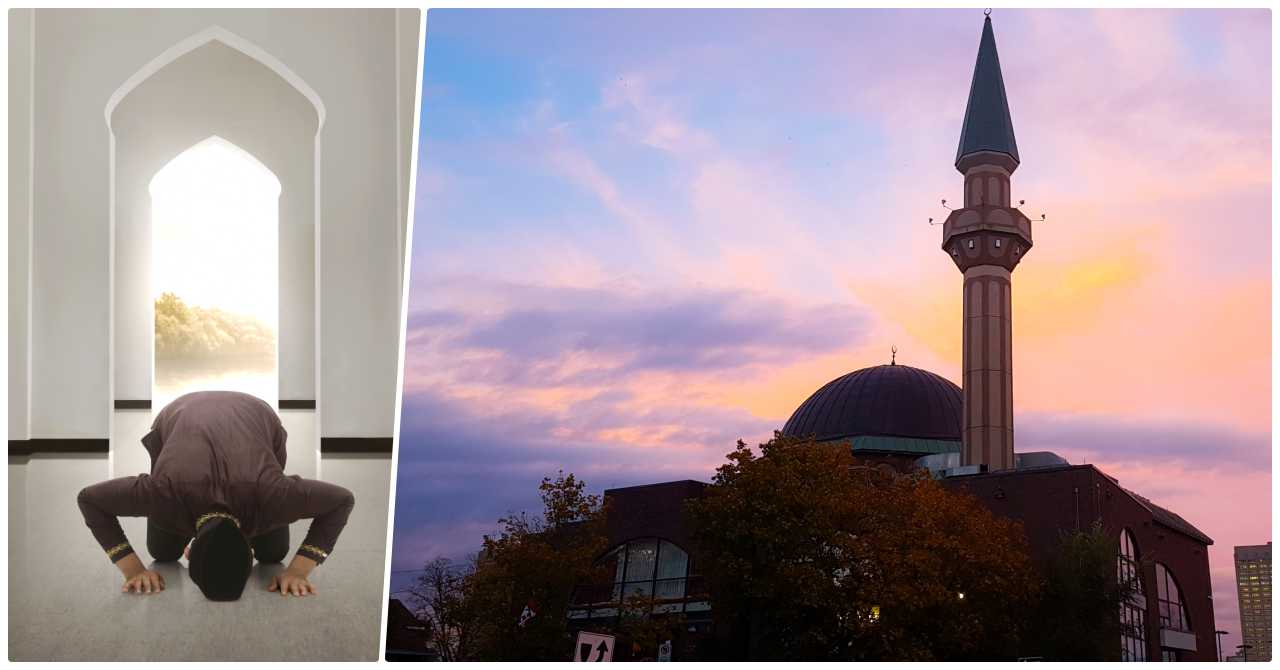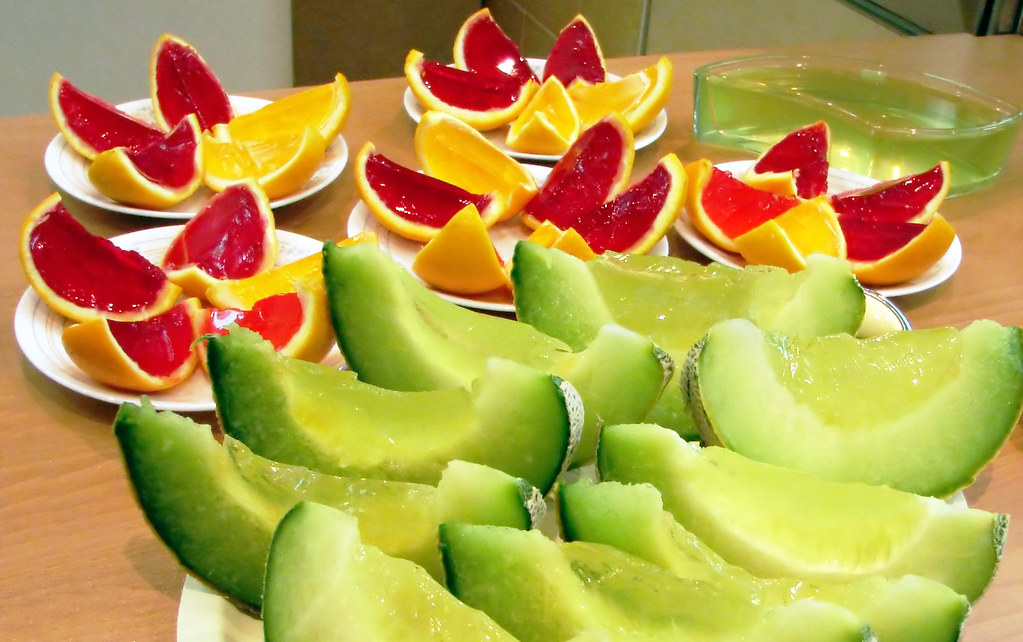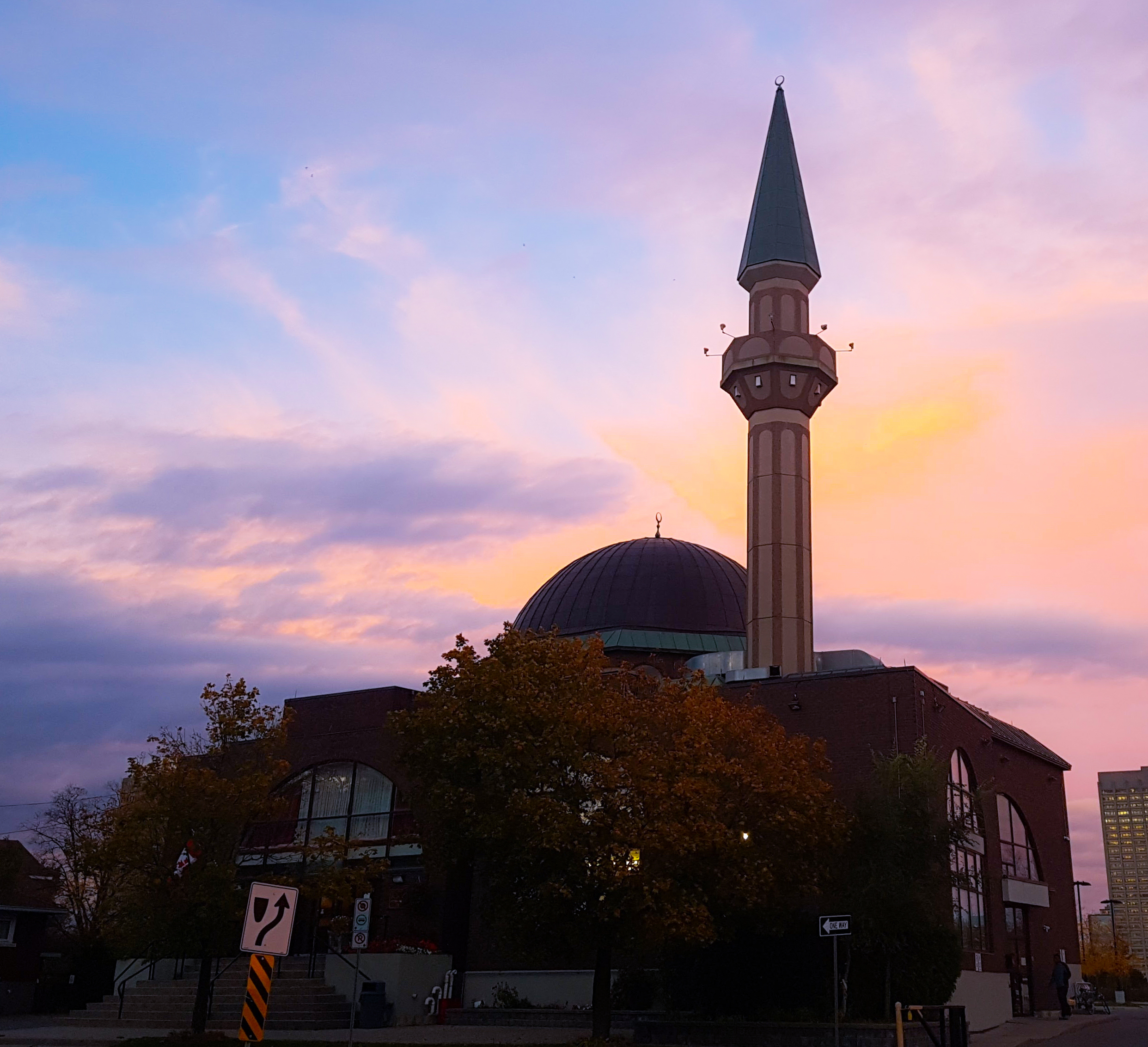Ramadan is a sacred time for millions of Muslims around the world, including in Canada. With a growing Muslim population, Ramadan in Canada is a vibrant and diverse celebration that brings together people from all walks of life to observe fasting, prayer, and acts of charity. But for those new to the country or unfamiliar with the customs of Ramadan, navigating this holy month can be overwhelming. That’s why a Ramadan guide in Canada can be invaluable, providing insight into everything from fasting rules to community events.
Whether you’re a seasoned observer of Ramadan or just curious about this rich cultural tradition, this guide can help you make the most of this special time. Keep on reading to learn more.
Contents

Ramadan is the ninth month of the Islamic calendar. It’s when Muslims fast from dawn until sunset, abstaining from food and drink. Ramadan is also a time for prayer, charity and self-reflection.
The purpose of fasting during Ramadan is to teach Muslims self-control and patience by abstaining from food and drink during daylight hours for 30 days (about 11 hours).
Fasting isn’t just about not eating or drinking; it’s also about refraining from bad deeds such as lying or fighting with others.
Ramadan ends with an important holiday called Eid al-Fitr (which means “festival of breaking one’s fast”), when Muslims celebrate together by sharing meals with family members who have been fasting all day long!
Ramadan in Canada
Ramadan is the ninth month of the Islamic calendar, and during this holy time Muslims fast from dawn until sunset. This type of fasting means abstaining from food and drink each day during this time. This can be challenging in Canada’s colder months, so most Muslims eat a light meal before sunrise and then break their fast with an evening meal known as iftar after sunset.
Ramadan has been observed in Canada since at least 1857, when Muslim students first arrived here to study at McGill University in Montreal (then known as Lower Canada). Today over 1 million Muslims are living in Canada – about 2% of our total population!
How to Prepare for Ramadan
Ramadan requires preparation, both spiritually and practically. Spiritual preparation involves reflecting on one’s intentions and committing to self-improvement through fasting, prayer, and acts of kindness. This includes reading the Quran and seeking knowledge about Islamic teachings to strengthen one’s faith.
Practically, planning for the entire month is essential, such as arranging schedules to accommodate prayer times and identifying activities to enhance spiritual growth.
Additionally, dietary considerations are crucial since fasting from dawn to dusk is a significant aspect of Ramadan. Preparing healthy meals for suhoor (pre-dawn meal) and iftar (breaking of fast) can help individuals sustain their energy levels throughout the day.
These preparations can help individuals fully embrace the essence of Ramadan and create a meaningful experience.
Fasting During Ramadan
Fasting is one of the five pillars of Islam and is obligatory for all Muslims of sound mind, age and body. The month of Ramadan begins on the first day after the new moon appears in the sky and ends on Eid al-Fitr, which marks its end.
During this time, Muslims must abstain from food and drink from dawn until sunset each day. This includes water and other liquids such as milk or soup containing small amounts of solid particles like flour or sugar crystals (which could be mistaken for saliva).
If you have diabetes or another medical condition that requires you to take medication with food, then it is permissible for you to break your fast provided that your physician has told you this will not cause harm or put your health at risk in any way
Breaking the Fast During Ramadan
Breaking the fast during Ramadan is an important part of this holy month. It’s also a time to spend with family and friends, so knowing how to break your fast is important.

If you’re not sure how to do this, don’t worry! Here are some tips:
- Ensure that everyone around you knows you’re about to break your fast. You don’t want anyone accidentally eating or drinking in front of you while they think that you’ve already eaten!
- Eat something sweet first – this will help ease any hunger pangs and make sure that no one gets too full before breaking their own fasts later on in the day (or night). Some common foods include dates, fruit juice or milk products like yoghurt or ice cream (if available).
Places where you can Break the Fast in Canada during Ramadan

During Ramadan in Canada, there are many places where Muslims can break their fast and enjoy community iftar meals. Here are some of the most popular places:
- Mosques: Mosques are the most common place for Muslims to break their fast during Ramadan. Many mosques organize iftar meals, which are often open to the public, and provide a space for prayer and reflection.
- Community Centers: Community centers often host iftar events during Ramadan, bringing together people from different backgrounds to break bread and socialize.
- Restaurants: Many restaurants in areas with a significant Muslim population offer special Ramadan menus or iftar deals, making it easy for individuals and families to break their fast outside the home.
- Public Spaces: In some cities, public spaces such as parks or plazas are transformed into Ramadan tents during the holy month, providing a festive atmosphere for breaking the fast.
- Homes: Finally, many Muslims choose to break their fast at home with family and friends. Hosting iftar gatherings at home is a cherished tradition during Ramadan, and many households open their doors to guests and neighbors.
Ramadan Celebrations in Canada
Ramadan is a month-long celebration that takes place in the ninth month of the Islamic calendar. During this time, Muslims fast from dawn until sunset and abstain from food, drink, and sexual relations.
Ramadan celebrations in Canada are similar to those around the world: people gather with family and friends for iftar (the breaking of their fast) dinners; children visit their local mosque for nightly tarawih prayers; families pray together at home or make trips to local mosques; many people give back through charity work such as volunteering at shelters or soup kitchens.
Muslim Community in Canada
If you’re looking to celebrate Ramadan in Canada, there are plenty of mosques and Islamic centers across the country that offer community events and activities during this holy month. Here are some options grouped by province:
Alberta:
- Baitun Nur Mosque in Calgary
- Calgary Islamic Centre
- Al-Rashid Mosque in Edmonton
- Baitul Hadi Mosque in Edmonton
- Edson Mosque
British Columbia:
- Bait-ur-Rahman Mosque in Delta
Manitoba:
- Ahmadiyya Centre Mosque in Winnipeg
Newfoundland & Labrador:
- Masjid-an-Noor in St. John’s
Northwest Territories:
- Inuvik Mosque
Ontario:
- Islamic Society of North America in Mississauga
- Masjid Noor-Ul-Haram in Toronto
- Masjid Vaughan in Vaughan
- Jame Abu Bakr Siddique in Toronto
- Jannatul Ferdous Mosque in Toronto
- Ahmadiyya Abode of Peace in Vaughan
- Bait-ul Kareem Mosque in Mississauga
- Baitul Mahdi in Vaughan
- Baitul Islam Mosque in Maple
- Baitul Hamd in Mississauga
- Bait-ul Ehsaan Mosque in Mississauga
- Brampton Mosque
- Hadeeqa-e-Ahmad in Mississauga
- Malton Mosque in Mississauga
- Ottawa Mosque
- Dar As-Sunnah Mosque in Scarborough
- Islam Care Centre Mosque in Brampton
- Ahmadiyya Muslim Mosque in Toronto
- Ahmadiyya Muslim Mosque Kanata in Ottawa
- Assalam Mosque in Ottawa
- Ottawa Ismaili Mosque
- BIlal Masjid Mosque in Scarborough
Quebec:
- Al Nusrat Mosque in Montreal
- Islamic Cultural Centre of Quebec City in Quebec City
Saskatchewan:
- Ahmadiyya Muslim Center in Saskatoon
- Darur Rahmat Mosque in Regina
These are just some of the many options available in Canada to celebrate Ramadan. Be sure to check with your local mosque or Islamic center for specific events and activities during this holy month.
Ramadan Traditions in Canada
While Ramadan is a religious holiday, it involves many cultural and social traditions. These traditions vary from country to country, but there are many similarities between the celebrations that take place worldwide.
In Canada, one of the most common practices during Ramadan is abstaining from food and drink during daylight hours (from dawn until sunset). This practice helps Muslims focus on spirituality and prayer instead of hunger pain or thirst. It also encourages charity towards those less fortunate than yourself; this can be done by giving money or food to those in need or sharing what you have with others who may not be able to afford as much as you do during this period.
Ramadan ends with Eid al-Fitr, which marks an end to fasting for 30 days!
While the basic tenets of Ramadan are the same for Muslims around the world, the way the holy month is observed can vary depending on cultural and regional traditions. Here are a few ways in which Muslims in Canada may observe Ramadan differently:
- Fasting Hours: Muslims in Canada may observe different fasting hours depending on the time of year and the location in which they live. In some parts of Canada, the days are longer during Ramadan, so Muslims may have to fast up to 18 hours a day.
- Community Celebrations: In some regions of Canada, Muslims organize community events and celebrations to mark the beginning and end of Ramadan. These events may include public iftar meals, prayer gatherings, and cultural performances.
- Diversity of Muslim Communities: Canada has a diverse Muslim population, with people from different ethnic, cultural, and linguistic backgrounds. As a result, Ramadan observances may vary among these different communities.
- Multilingual Religious Services: In Canada, mosques and community centers often offer religious services and programs in multiple languages to accommodate the diverse Muslim population. This includes Arabic, English, Urdu, and other languages Muslims speak in Canada.
- Charitable Giving: Giving to charity, known as zakat, is an important aspect of Ramadan for Muslims worldwide. In Canada, Muslims may donate to local or international organizations to help those in need.
Ramadan Etiquette in Canada
Ramadan is a holy month of fasting and prayer, lasting 29 or 30 days, depending on the lunar cycle. During this time, Muslims abstain from eating or drinking from sunrise to sunset.
During Ramadan, Muslims in Canada observe a set of rules and practices that are essential to the religious observance of the holy month. Here are some of the do’s and don’ts that Muslims in Canada should keep in mind during Ramadan:
Do’s:
- Do fast from dawn until dusk: Fasting is one of the most important aspects of Ramadan. Muslims should abstain from eating, drinking, and intimate relations during the daylight hours of the holy month. This is part of their religious devotion and duty as Muslims.
- Do attend religious services: Muslims should attend the mosque for nightly Taraweeh prayers and other religious services during Ramadan.
- Do practice kindness and charity: Ramadan is a time for increased acts of kindness and charity. Muslims should donate to charity, help those in need, and practice forgiveness and compassion.
- Do break the fast with dates and water: Muslims should break their fast with dates and water, following the example of the Prophet Muhammad.
- Do seek forgiveness and self-reflection: Ramadan is a time for self-reflection and seeking forgiveness. Muslims should use this month to reflect on their actions and seek forgiveness from God.
Don’ts:
- Don’t eat, drink, or smoke in public during daylight hours: Muslims should avoid eating, drinking, or smoking in public during Ramadan.
- Don’t engage in gossip or negative behavior: Muslims should avoid engaging in gossip, negative behavior, or any other activities that go against the spirit of Ramadan.
- Don’t skip prayers or religious services: Muslims should make an effort to attend all religious services during Ramadan and not skip any prayers.
- Don’t waste food or resources: Muslims should avoid wasting food or resources during Ramadan, as this goes against the spirit of the holy month.
- Don’t engage in intimate relations during the daylight hours: Muslims should refrain from engaging in intimate relations during the daylight hours of Ramadan.
Video: Ramadan In Canada
In Neha Ejaz’s Ramadan vlog, she takes her viewers on a journey of her first-time experience celebrating the holy month with her family at an Islamic Relief Center in St. Thomas. Her brother, who is the emcee for the event, welcomes her and her family to the center where they witness the common etiquette and traditions of Ramadan. Neha shows viewers how people gather with their families to pray and observe the holy month with devotion and dedication. The video also highlights the importance of community iftar, where people come together to break their fast and share meals. Neha captures the spirit of the occasion by showing people singing and enjoying each other’s company. The video offers a glimpse into the joy and unity of Ramadan and how it brings people together in celebration and reflection.
Frequently Asked Questions
1. When is Ramadan in Canada?
Ramadan is a lunar month that shifts by about 10 days every year. The exact start date of Ramadan in Canada depends on the sighting of the new moon, but it usually falls in April or May.
2. Who observes Ramadan in Canada?
Muslims in Canada, which includes both immigrants and Canadian-born Muslims, observe Ramadan.
3. What are the basic tenets of Ramadan?
Ramadan is a time for fasting, prayer, reflection, and charity. Muslims abstain from food, drink, and intimate relations during the daylight hours, break their fast with dates and water, and engage in increased acts of charity and devotion.
4. How long do Muslims fast during Ramadan in Canada?
The length of the fast varies depending on the location and time of year. In some parts of Canada, Muslims may fast for up to 18 hours a day during Ramadan.
5. Are Muslims in Canada allowed to work during Ramadan?
Yes, Muslims in Canada are allowed to work during Ramadan, but they may need to adjust their work schedules to accommodate their religious obligations.
6. Are there any exceptions to fasting during Ramadan in Canada?
Yes, there are exceptions to fasting during Ramadan in Canada, including for children, pregnant or breastfeeding women, the elderly, and those who are ill or traveling.
7. How do Muslims in Canada break their fast during Ramadan?
Muslims in Canada usually break their fast with dates and water, following the example of the Prophet Muhammad. After breaking their fast, they may have a full meal with their families or attend community iftars.
8. What is Eid al-Fitr?
Eid al-Fitr is the celebration that marks the end of Ramadan. Muslims in Canada typically celebrate Eid al-Fitr with prayers, community gatherings, and feasts with family and friends.
Final Thoughts
In conclusion, Ramadan is an important time for Muslims in Canada, where people from diverse backgrounds come together to observe the holy month through fasting, prayer, and charitable acts. As the Muslim population continues to grow in Canada, it’s important to have a guide that can help those new to the country or unfamiliar with the customs of Ramadan navigate this sacred time. Whether you’re a seasoned observer or new to the traditions, this guide can help you learn more about the customs and practices of Ramadan in Canada. Let’s embrace the spirit of this holy month and take advantage of the opportunities to connect with our communities, reflect on our values, and deepen our spirituality.
READ NEXT: Do’s And Don’ts in Canada
50 thoughts on “Ramadan Guide for Muslims in Canada”
Comments are closed.